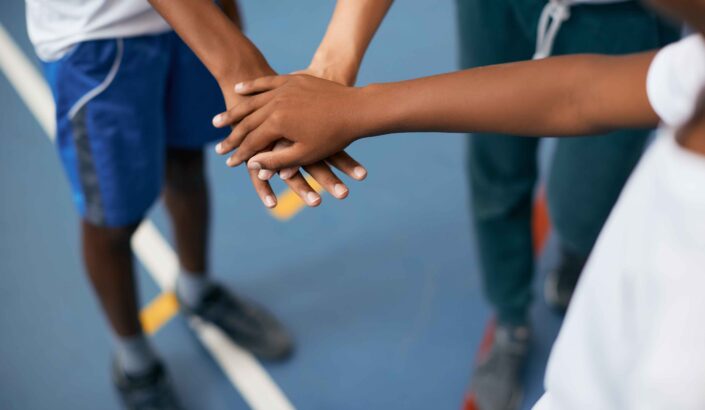What Is It?
The 2019 International Olympic Committee declared the practice of sport a human right in its Olympic Charter. Yet, the fields of physical education (P.E.) and sport suffer from a history of bias (e.g., sexism, racism, classism, ableism).
A prosocial form of P.E. reimagines our approach to physical education, so that the practice of sport is not only free of discrimination, but also develops good virtue and character in students. Indeed, prosocial P.E. can help students grow physically, cognitively, and emotionally—a holistic approach to education championed by educators and scholars alike.
In addition, while physical activity and sports have always played an integral part in our societies, including for ceremonial, entertainment, or warlike purposes, a prosocial approach to P.E. may be a crucial key to building a more peaceful and flourishing society. For example prosocial P.E. provides students with many opportunities to practice the spirit of friendship, cooperation, respect, and humility—all qualities that help build a better world.
A P.E. teacher notices that the female students are being chosen last to join the basketball teams. The teacher takes a moment to talk with students about why that might be the case, and to consider how stereotypes have impacted various groups. The teacher then asks students to share their own feelings about the current situation and asks all to listen respectfully and consider how their words might impact others when speaking. Furthermore, the teacher asks students to reflect on how they might treat each other, ensuring that each team performs to its highest potential.
After a few sessions of working on one particular skill, the P.E. teacher asks students to identify one way in which they could improve their performance, while reminding them that they can always continue to improve.
Why Is It Important?
Though the research is limited, evidence suggests that using a prosocial (kind, helpful) lens when teaching physical education promotes students’ social-emotional, ethical, and civic development alongside their physical growth.
Physical Education encourages prosocial behavior in students.
- One study of 8th graders found a positive relationship between regular participation in athletic sports and prosocial behavior, including improvement in helping the elderly, obeying orders, and being sincere and friendly to others over the past year.
- Research has found that emphasizing cooperation in physical education classes can encourage greater empathy and cooperation among students.
Physical activity promotes well-being.
- College students who engage in greater physical activity report greater life satisfaction and happiness, and better perceived health.
- Research shows that exercise promotes self-esteem and social support, which can help reduce depressive symptoms.
Physical Education helps students develop the skills essential for academic success.
- Physical Education that focuses on the whole person (the emotional, social, cognitive, and physical dimensions of the self) can encourage more responsible behaviors, such as the ability to seek out social resources and to self-regulate their learning.
- Researchers discovered that Physical Education can help develop self-control in students, which may contribute to their academic achievement.
Practices
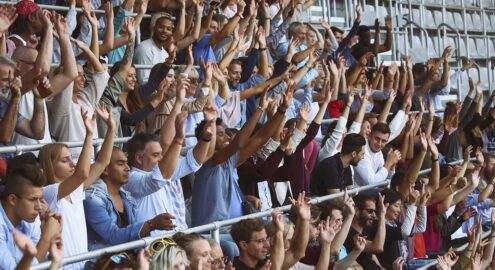
The Beauty of Collective Effervescence
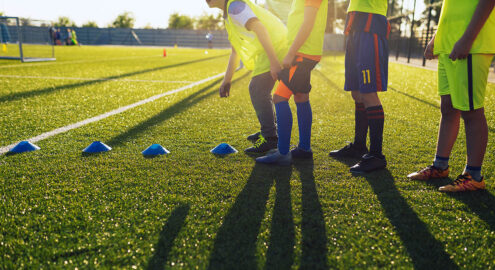
Giving and Receiving Feedback in Physical Education
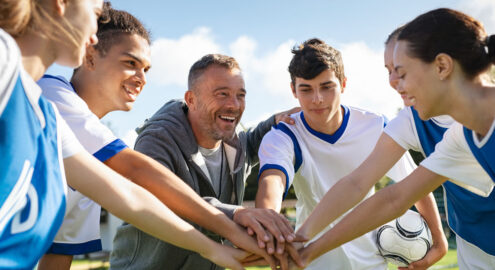
Challenging Gender Stereotyping and Homophobia in Sports
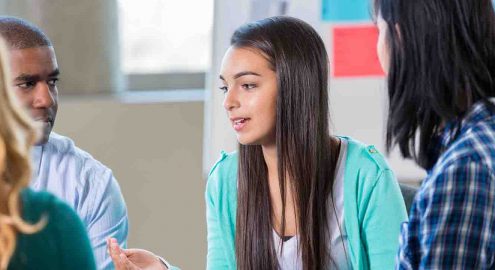
Family Business

Norm Co-Creation
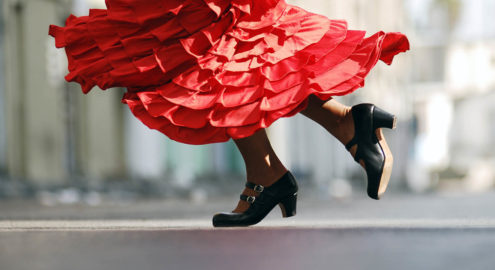
The World is a Dance
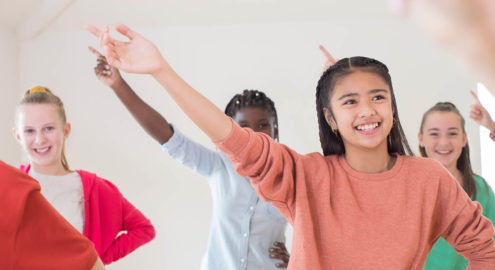
Getting to Know Each Other Through Dance
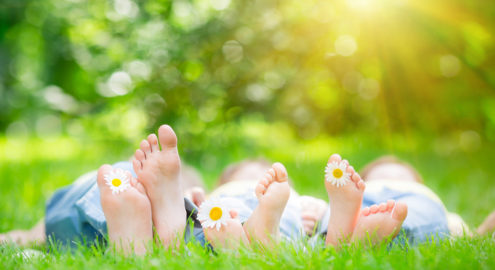
Rhyming Body Scan for Young Children
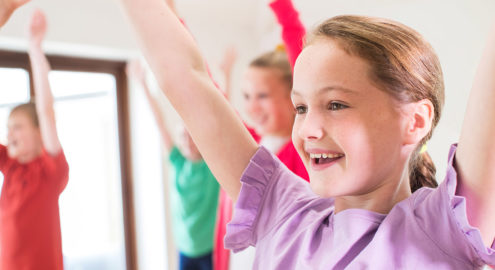
Shake It Off

Barefoot Walk: A Mindful Movement Practice
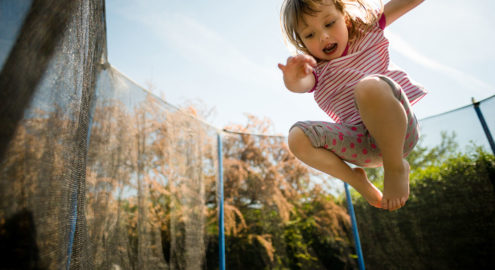
Appreciating Our Bodies: A Body Scan with Gratitude
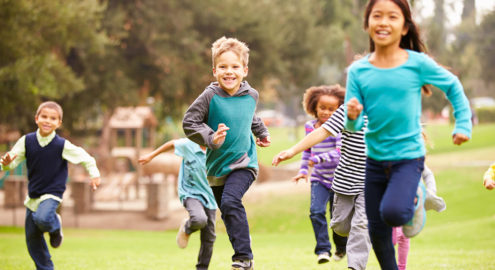
Magic Tag
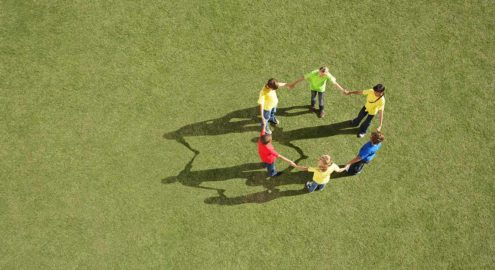
Crooked Circle: A Game for Building Trust

Are you ready to build a kinder, happier school where everyone belongs? Join Greater Good Educators! Explore the science of well-being in a supportive community of educators from around the world. Registration is now open for the 2025-2026 school year!


